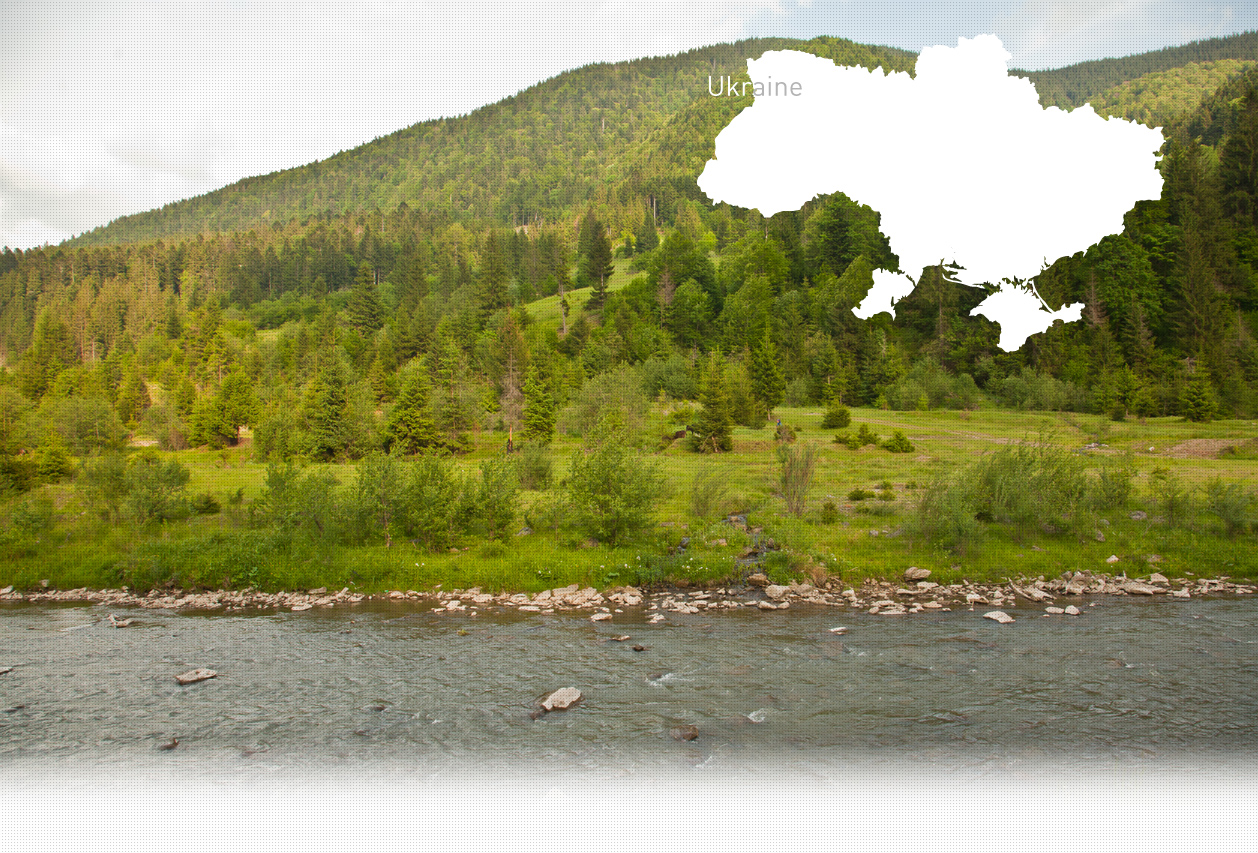

2 Killing site(s)
Inver I., born in 1930, remembers: “People thought Germans would come from Sebastopol, but they didn’t. Everthing happended so quickly that we didn’t even have time to realize that . The Jews were shot in several places. There were big anti-tank trenches on the other side of the town. It is there where the Jews were shot. During an execution two Jews who had been put aside had to throw soil in the pit between the rounds of executions. Afterwards, they were shot as well. As the pit wasn’t covered well the bad smell started to spread out all over the town. Then, the locals took the shovels and filled in the pit properly.” (Witness N°1702, interviewed in Bakhchysaray, May 20, 2013)
“The shootings were conducted on February 29 and April 10, 1944, by Germans assisted by the police. The execution site is located at the edge of the village of Eski-Yurt, 4km away of Bakhchisaray, in the middle of the step, in the anti-tank ditches. Only two of four found mass graves were opened. In these two pits 93 corpses were found, including 54 male corpses, 34 female and 5 children’s corpses, one of whom was a nursing infant. Those who were shot on February 29, 1944, were undressed although the ones shot on April 10, 1944, were dressed. Some documents and money were found in the pockets of the clothing. Some men had their shoulder bones broken. […] The bodies were thrown one over another facing the ground. The victims died as result of a bullet to the nape of the neck. The other two pits were exhumed because of the advanced stage of bodies’ decomposition. It was impossible to recognize the victims. […]” [Act drawn up on April 23, 1944, by Soviet Extraordinary Commission (ChGK); RG.22-002M:7021-9-33]
“I know that there was one execution of Jews in Bakhchysaray. The Obersturmführer P. led that execution. At that moment, he was part of my commando. I had given him the “Führerbefehl” according to which, all the Jews from Reich had to be liquidated.
I think that Untersturmführer M. also stationed in Bakhchisaray. He was part of the commando as well and I know he organized the hangings after. I didn’t see anything else because I stayed in Bakhchisaray until April 1942.” [Deposition letter of Paul Z., Sonderkommando chief, Munich, Germany, on January 9, 1968, B162-1004].
Bakhchysaray is a town located in central Crimea 30 km southwest of Simferopo and 31km northeast of Sebastopol. Founded in 1532, it became a capital of Crimean Khanate and a cultural and political center of the Crimean Tatars. The first Krymchaks settled down in in Chufut-Kale, which today is part of Bakhchisaray, in the early 13th century. The first records about a Karaite community go back to the early 15th century. By 1793, the Jewish community numbered 1,162 Jews, Karaite and Krymchaks. According to historical sources, in 1897, there were 210 Krymchak Jews and 967 Karaites in Bakhchysaray. The majority of Jews lived off small scale trade and handicrafts. In 1920s the Jewish community decreased due to dislocation to others bigger cities. On the eve of the German occupation, 228 Krymchak, Karaites and Ashkenazi Jews lived in the town, along with over 7,000 Crimean Tatars.
Bakhchysaray was occupied by the Germans on November 2, 1941. According to historical sources, some 40 Jewish families stayed in Bakhchyysaray while others managed to evacuate to the East. The Karaites were not considered Jewish by the Germans, and they weren’t persecuted. According to German reports, the first execution was conducted on December 13, 1941, by Sonderkommando 11a. On this day, 90 Jews, mostly Krymchaks, were taken outside the town and shot in the anti-tank ditches, close to the Eski-Yurt village, today is the part of Bakhchysaray. However, according to the testimonies given to the Soviet commission in Crimea the execution took place on February 29, 1944 and April, 10, 1944. As a result of these executions about 200 Jews were murdered. According to the testimonies prisoners of war camp was established in Bakhchisray and it existed for about 2 or 3 months.
Do you have additional information regarding a village that you would like to share with Yahad ?
Please contact us at contact@yahadinunum.org
or by calling Yahad – In Unum at +33 (0) 1 53 20 13 17